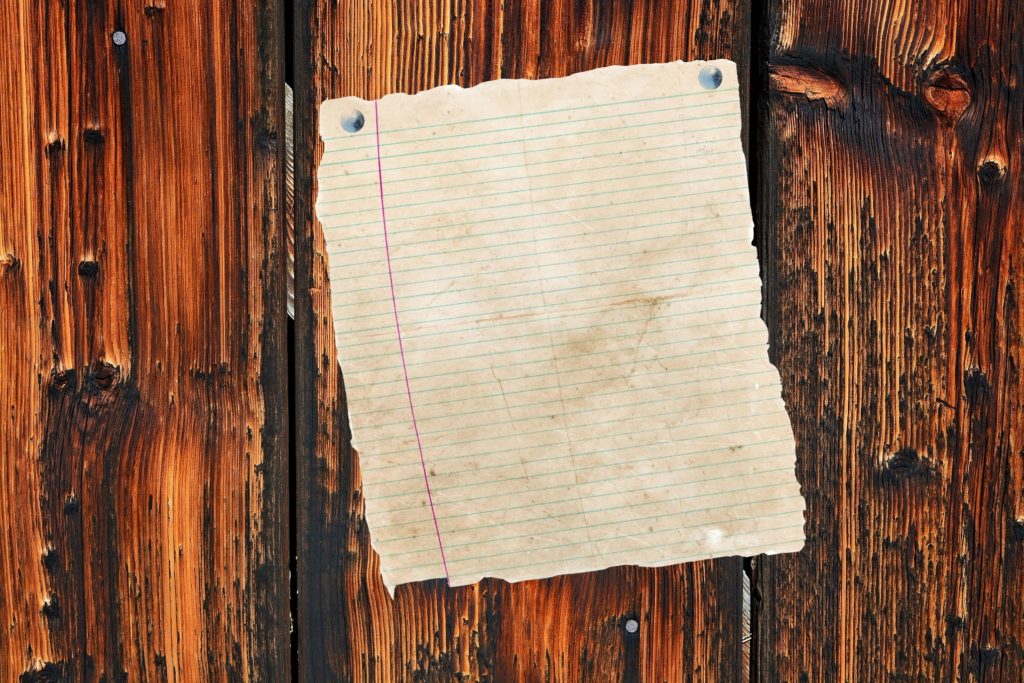Don’t Go Shopping Without a List

Have you ever gone to the grocery store without a list? If so, you probably know the following things are highly likely:
1. We spend a lot more time than necessary in the store…
When we go into a grocery store to do our shopping for the upcoming week or two, but don’t bother to bring a list, we inevitably end up going back and forth all over the store. We think of one thing and run to that aisle. That makes us think of another item we need, and we go clear back across the store again. This strategy (or, more accurately, lack of strategy) will turn what should have been a simple trip to the market into a fully-wasted afternoon of frustration.
2. We spend a lot more money than planned…
Without a list, we usually end up buying a lot of products that we like, but that we may or may not need for the meals we will ultimately cook that week. Impulse purchases, made by grabbing whatever beckons to us from the shelves, without much thought to price, or how each item fits into our meal strategy for the week, often result in sticker shock at the final bill. This fact is not lost on the markets and food companies, who spend countless hours and dollars planning the packaging and shelf placement needed to exploit it. What’s worse is that we too often end up wasting food that we don’t use, and may not end up with the items we actually need to complete the meals we wanted.
3. We end up with a lot of food, but no meals…
When we run to the store without a little forethought, and just decide to ‘wing-it’, we usually end up with a lot of tasty food in the cart, but rarely with the makings of well-balanced meals for the week. We found a delicious-looking steak, but forgot to get all of the ingredients needed for the salad. That wonderful free-range chicken on sale was a score, but remember, the kids wanted chicken piccata, and we forgot lemons. How about the appetizers, side dishes, and desserts? There is nothing worse than spending time and money at the market only to come home and realize we have food, but still can’t make a balanced meal.
As we get older, and recall going through these experiences more than once, we begin to realize the importance of taking a little time to prepare before heading out to the store. Measure twice, cut once, as the saying goes. You probably see where I’m heading with this, but, of course, the same is true of investing. If we don’t have a plan (our financial shopping list, as it were) we’re likely to buy lots of financial products over the years, that sound good on paper, but may not end up working well together to help address our specific needs. We waste valuable time going back and forth trying to decide what to buy, and second-guessing ourselves after-the-fact. The end result, oftentimes, is that we set ourselves back financially, by putting together an inefficient or sub-par portfolio and squander valuable energy which could be directed towards more fulfilling pursuits. As with all things in life, a little planning goes a long way.
A well-thought-out financial plan helps to determine and prioritize our financial objectives, and turns them into quantifiable benchmarks, by examining and filtering data from all areas of our financial life, and developing a framework for organizing and monitoring each area as we go forward. It serves as a basic outline for all of our future strategies, and lays out, in advance, what we will, or at least should, do during various markets cycles and stages of our financial lives. A ‘shopping list’, if you will, designed to help us avoid the types of impulsive reactions that so often steer us in the wrong direction.
When we go to the market without a list, the worst that happens is we spend a little too much money, have a long, frustrating afternoon, and end up with an unsatisfying meal. When we fail to plan financially, we run the risk of jeopardizing both our financial future and our emotional well-being.
So if you’ve spent more time thinking about what to cook this week than how you’ll pay for your kid’s college education or your own retirement, my advice, is to carve out a little time, sooner than later, to start planning your financial future.